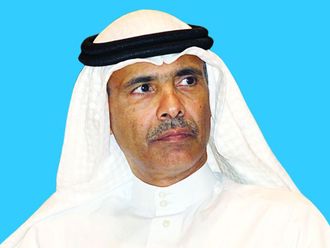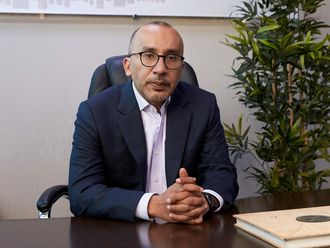Last week, I had an intense debate with an individual who’s directly associated with designing economic policies. What triggered the debate was a question that I asked: “Which oil producer is most likely to survive a post-oil era?”
I would have expected here an answer that briefly explains a non-oil model for the economy, incorporating different policies that are directed at increasing all other-than-oil revenues, as well as at keeping costs at bay to balance budgets and eventually achieve surplus(es). I was too optimistic.
The discussion instead focused on how oil is the future, and how oil producers should be moving towards higher investments in oil, upstream and downstream, to keep those revenues flowing, and, as a result, spending. A minute of silence.
That conversation though sparked a couple of questions in my mind: can an oil economy and a knowledge-based economy coexist? Or does an oil economy, or any natural resource-fuelled one, precede a knowledge-based economy?
Here’s the thing. When the economy is driven by revenues from oil or other natural resources, those revenues are mainly channelled into one, spending in the economy, which could be to create jobs, to increase demand via pay raises, and to spur growth ultimately; and two, saving for the future and investing in it.
For the sake of this article, I am interested in further elaborating on the second part, especially that such savings and investments could deter a country’s resolve in attaining a knowledge-based economy.
An example here. Portugal has managed to miraculously pull itself out of the 2007-08 financial crisis and to achieve growth, with no natural resources to come to the help. Portugal did not just follow in Greece’s extreme austerity steps, but in fact did the exact opposite to increase domestic demand.
Portugal thus managed to reignite economic growth, showing the EU that there’s an alternative route towards balancing budgets that doesn’t necessarily include austerity. Portugal’s economic growth is greatly credited to its finance minister, recruited from academic circles. The moral of the story is that a country with developed, skilled human capital can always find its way back from an economic brink.
Back to the earlier questions, coexistence or a transitional process? A bit of both, I would say.
To eventually create a knowledge-based economy, a country must invest earlier on in its human capital, with revenues from natural resources being a facilitator rather than a reason to sit back and relax. With or without natural resources, developed human capital in different fields are the true economic drivers.
And in its pursuit, countries must know what skills and specialisations they would require in the coming decades. Laying the ground for tomorrow’s balanced, continuous economic growth by today’s implementation of policies that would warrant that those skills are home-grown.
A knowledge economy is one that is driven by people who understand what it takes to move away from oil and other natural resources, not desire to further invest in them. A knowledge-based economy is also one where different policies are scrutinised via a rigorous cost-benefit analysis that does not take revenues from oil and other natural resources for granted.
“The stone age did not end for lack of stone, and the oil age will end long before the world runs out of oil” ... That 30 plus year old quote by Shaikh Zaki Yaman, a former Saudi oil minister, sums it all up. The quote seems to be implicitly hinting that there will be a time when countries with the best minds, not greatest natural resources, are the ones that are going to prevail.
And tomorrow’s sovereign wealth fund will be one of highly intellectual capable individuals, which a country can count on in good times to extend economic growth ... and in bad times to reignite it. The last thought that I want to leave you with: which oil producer is most likely to survive a post-oil era?
The writer is a UAE based economist.












